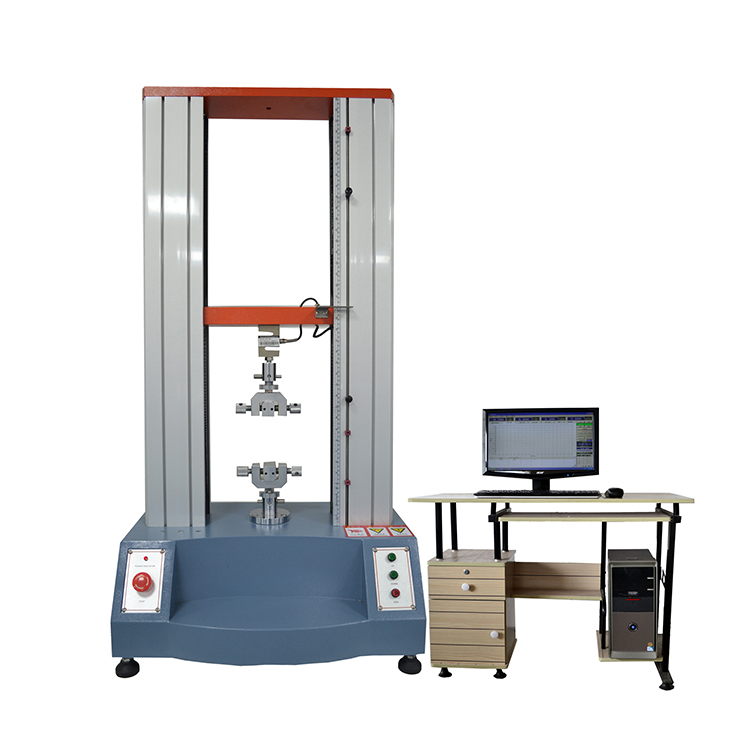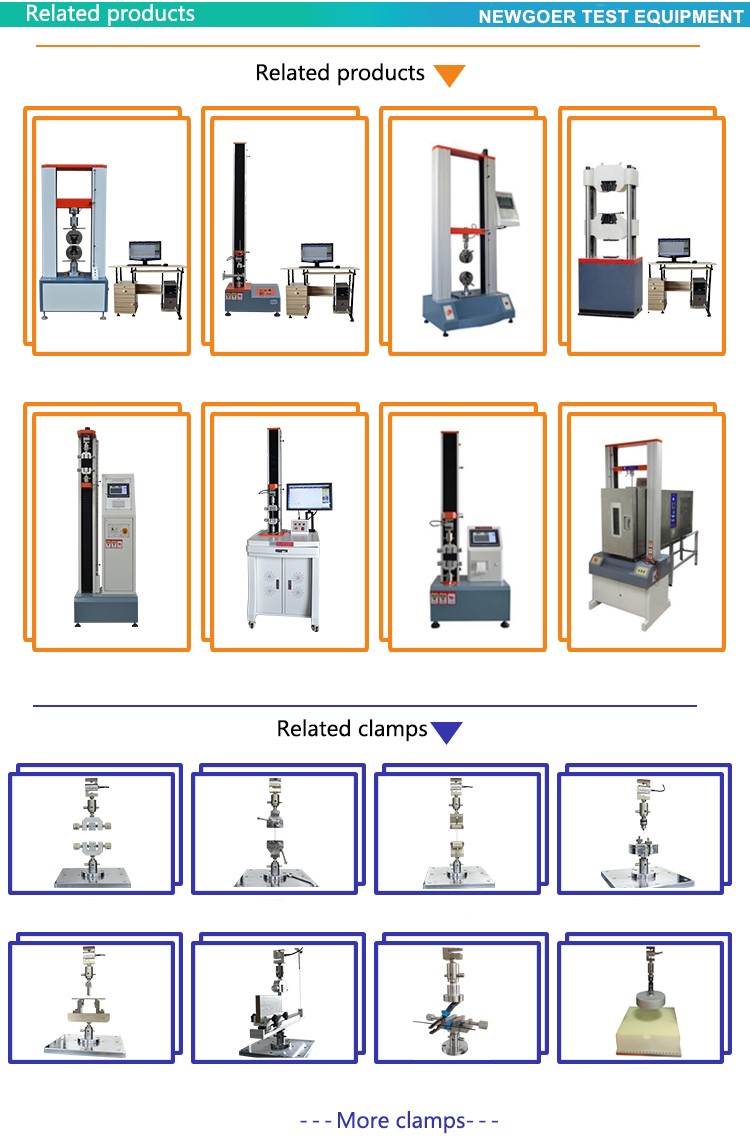Description
| Items | Servo Universal Tensile Testing Machine |
| Model | NG-101 |
| Max. Capacity | 10, 20, 50, 100, 200, 500, 1000, 2000Kg (Optional) |
| Unit | G, KG, N, LB can be exchanged |
| Accurate Grade | 0.5grade |
| Display Device | PC |
| Resolution | 1/250,000 |
| Effective Accuracy | ±0.2%(0.5grade) |
| Max. Effective Stroke | 800mm (column 143mm) |
| Speed Range | 0.05-500mm/min (adjustable ) |
| Motor | Servo Motor + High Precise Ball Screw |
| Elongation Accuracy | 0.001mm |
| Power | AC220V, 50/60HZ(custom-made) |
| Standard Accessories | Tensile Clamp (According to your test samples), English Computer,
English Software CD |
Overview:
ASTM D412 covers two test methods: Method A and B. Method A is a common guideline for evaluating the tension properties of dumbbell samples of vulcanized thermoset rubbers and thermoplastic elastomers. Method B covers procedures to evaluate the tension properties of flat ring samples of vulcanized thermoset rubbers and thermoplastic elastomers. ASTM D412 gives you the choice of six specimen geometries and cutting die. The standard calls for specimens which have not been pre-stressed to be measured for:
• Tensile stress
• Tensile stress at a given elongation
• Tensile strength
• Yield point
• Ultimate elongation
ASTM D412 Test Method A
Method A for ASTM D412 is a common test for dogbone and strip samples of rubber and elastomers. Tensile stress, yield point, and tensile strength are based on the original cross-sectional area of a uniform cross-section of the specimen. Measurement of tensile set is made after a previously unstressed specimen has been extended and allowed to retract by a prescribed procedure.
Method A can be performed using a universal testing machine capable of constant rate of extension (CRE) control. To determine tensile stress, tensile strength and yield point, place your dumbbell-shaped sample in the grips. The rate of grip separation should be 500 to 50 mm/min (20 to 2 in./min). Start the machine and note the distance between the bench marks. Record the force at the elongation specified for the test and at the time of rupture. The elongation measurement is made preferably through the use of an extensometer.
Test Procedure
1. Cut or injection mold your material into a “dumbbell” shaped specimen.
2. Load the specimen into tensile grips.
3. Attach the optional extensometer to the sample
4. Begin the test by separating the tensile grips at a speed of 20 inches per minute
5. End the test after sample break (rupture)
Analysis obtained:
1. Stress at user-specified extension or elongation
2. Tensile Yield Stress
3. Tensile Yield Strain
4. Tensile Strength at Rupture
5. Elongation at Rupture

ASTM D412 Test Method B
Test Method B also requires a universal testing machine. Method B is a less common test, requiring rubber ring samples. When beginning your testing, set the rate of spindle separation 500 +/- 50 mm/min (20 +/- 2 in./min). Start the test machine and record the force and corresponding distance between the spindles. When the specimen breaks, measure and record the ultimate (breaking) elongation and the tensile (force) strength.
Equipment and Software Required
Test Method A & B of ASTM D412 specify a test machine with at least 30 inches of travel and a test speed to 500 mm / min (20 ipm). TestResources provides special ASTM D412 test software. Our D412 software performs stress calculations as various elongation points and also does multi-test statestical analysis. The software makes testing for ASTM D412 simple. By means of our extensive testing expertise and modular product design, we will help configure the testing solution that is right for you. Give one of our application engineers a call today for help with creating the best budget and testing plan according to ASTM D412.
Recommended Rubber Elastomer Test Machine
Our Model NG-101, Double Column Universal Tensile Tester with Extensometer
















Reviews
There are no reviews yet.